Latest News
Washington struggling to isolate the Islamic Emirate
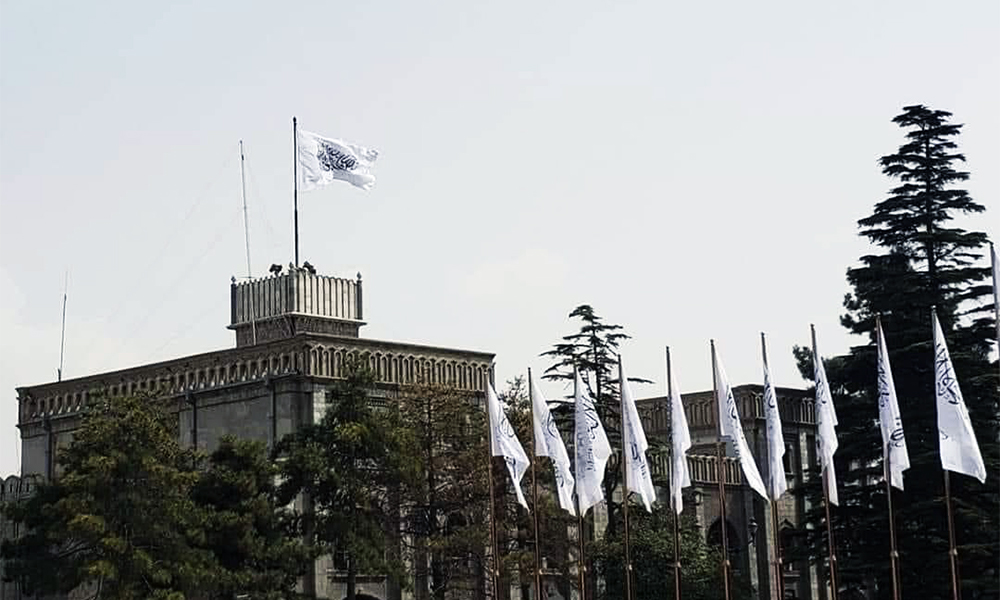
A growing number of governments, including China, are going against Washington’s approach and are not treating the Islamic Emirate as a pariah regime.
According to an article published in Foreign Affairs, the United States and its allies’ approach has been to isolate the Islamic Emirate of Afghanistan (IEA), by withholding diplomatic recognition and the benefits that usually come with normal diplomatic relations.
The approach that the United States and its allies and partners ultimately converged on was a commitment to continue engaging with the Afghan people—for example by providing substantial humanitarian aid—while withholding diplomatic recognition of the IEA and the benefits that usually come with normal diplomatic relations.
In fact, over the past two years, the United States has sought to build on this approach—not only by withholding its own recognition of the IEA but also by sustaining an international consensus on nonrecognition.
However, in the wake of concerted diplomatic efforts by the IEA to court neighboring countries and others in the region, several nations have been willing to accommodate the Islamic Emirate.
As Foreign Affairs reported, these states are among foreign governments that have embassies in Kabul and that host Afghan embassies overseas.
In January, several of these powers, including China, Iran, and Russia, even took part in a multilateral conference of their own hosted by the IEA.
Meanwhile, the IEA appears to be unmoved by global shaming, in particular when it comes to what they deem domestic affairs, such as the question of girls’ access to higher education and women’s right to work, Foreign Affairs reported.
Instead, Afghanistan’s leaders have portrayed international pressure as a violation of the country’s sovereignty, framing calls by Western leaders to uphold international norms as the latest episode in a long history of interference and intervention.
As the IEA has become more established in power, they have doubled down on a posture of resistance. As a result, rather than moderate their policies, they have pressed forward with further restrictions on women and social norms, Foreign Affairs reported.
The article stated that the erosion of the consensus on diplomatic isolation of the IEA raises important questions for Washington and its partners.
Nonrecognition is no longer a credible coercive tool, and if the United States seeks to influence the Islamic Emirate’s behavior, it must find other ways to achieve its desired aims.
Moreover, the Afghan case echoes similar situations Washington has faced with other difficult regimes, including its failure to prevent Arab countries from normalizing ties with Syrian leader Bashar al-Assad, despite crimes committed during the Syrian civil war, or to enforce a global consensus on the isolation of Russian President Vladimir Putin following Russia’s invasion of Ukraine.
Today, attempts by the United States to impose pariah status on regimes it doesn’t like are running up against serious limits.
However, analysts disagree on why Russia and China have not taken the final step of recognizing the IEA. One possibility is that both powers still seek more assurances from Kabul, especially concerning potential terrorist threats from (Daesh) Islamic State Khorasan and a number of other groups.
And as long as the United States actively promotes a nonrecognition strategy, Moscow and Beijing can reap many of the benefits of recognizing the IEA without having to formally buck the international consensus, Foreign Affairs reported.
“Thus, they can reassure the Taliban (IEA) they are on their side (for example by backing them in last December’s UN Security Council proceedings, defending Taliban positions on the recommendations of a recent UN assessment) while also withholding full recognition,” the article read.
Overall, the IEA is not being treated as a pariah regime - despite concerted US efforts to maintain an international consensus on nonrecognition. On the contrary, the region, led by China, is gradually normalizing with Kabul—and intends to continue doing so.
The IEA, for their part, are being validated by this expanding engagement. Their sense of confidence and a loss of patience with conditions-based, Western-backed engagement was evident in their refusal to attend the UN meeting of Afghan envoys in February.
The IEA was not invited to last year’s summit, so they rejected the new meeting as “ineffective and counterproductive.” Likely emboldened by Beijing treating them as a normal regime, the IEA responded to the UN’s invitation by insisting they be treated as the legitimate government of Afghanistan.
Foreign Affairs reported that with new sources of support, the IEA has less reason to submit to Western demands on human rights or inclusiveness in their government.
The failure of Washington’s existing IEA approach highlights the growing challenges to US diplomatic power around the world, Foreign Affairs stated.
Amid two major wars and intensifying strategic competition with China, the United States faces new difficulties in forging a collective international response to pressing global crises.
Meanwhile, China and regional actors are charting their own diplomatic paths, and regimes that the United States seeks to pressure can often find enough friends to defy Washington and maneuver for diplomatic gain, Foreign Affairs reported.
Latest News
Two horror accidents on Kabul-Kandahar highway leave 52 dead
The Islamic Emirate has directed the relevant directorate’s to investigate the incidents to determine the exact cause of both accidents
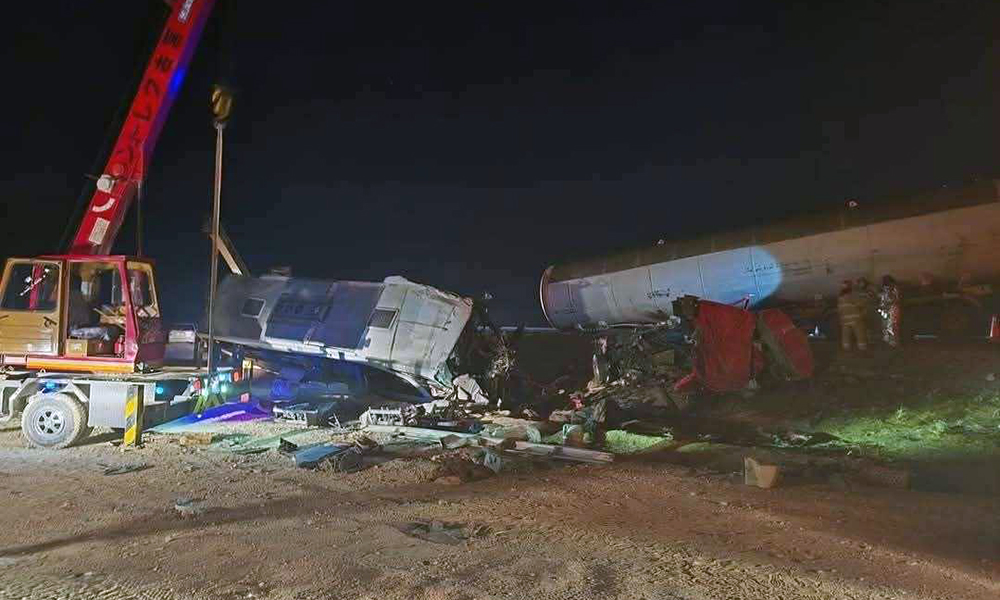
Two late-night traffic accidents in southeastern Afghanistan left at least 52 people dead and more than 65 injured, the Islamic Emirate confirmed early Thursday.
The accidents on Wednesday night happened in Ghazni province. Both accidents involved buses and one involved a fuel tanker.
According to a statement issued by the Islamic Emirate of Afghanistan (IEA) said: "It is with great regret that we learned that two fatal traffic accidents occurred on the Kabul-Kandahar highway, as a result of which 52 of our compatriots were martyred and 65 others were injured."
The Islamic Emirate has directed the relevant directorate’s to investigate the two accidents to determine the exact cause of both.
The Directorate of Information and Culture of Ghazni province meanwhile said in a statement that 47 people had died and 73 others were injured in the accidents.
The directorate stated that the injured had been taken to hospital; some of whom were in a critical condition.
One accident involved a passenger bus and a fuel tanker and the other involved a passenger bus and truck.
Latest News
There should be no distance between media and government: Stanikzai
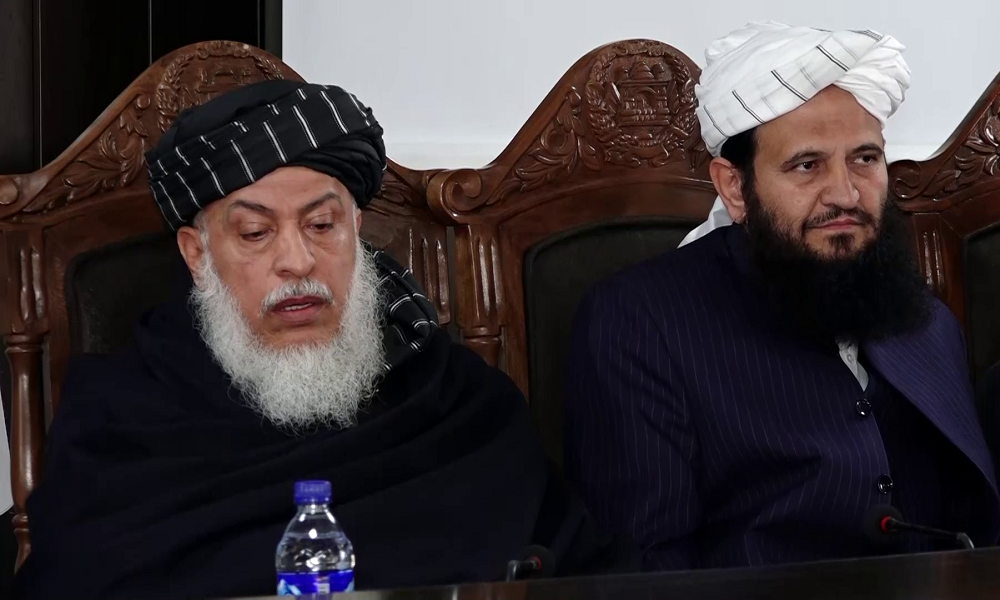
Sher Mohammad Abbas Stanikzai, the political deputy minister of foreign affairs, says media outlets should be supported in a way that there is no distance between them and the government.
Stanikzai, speaking at a seminar titled "The Role of Media in Strengthening the Islamic System" in Kabul, added that the media plays a crucial role in global propaganda wars, and it is necessary for the IEA to cease exerting pressure on the country's media and allow them to freely play their role in the development and prosperity of the country.
"The problems of the media should be heard, their voices should be heard, and the environment should be conducive for them to carry out their work freely,” he stated.
He further emphasized that the views towards the country's media should be such that both sides do not view each other as strangers, and the IEA should refrain from exerting pressure on the media and allow them to operate with freedom.
Meanwhile, officials from the Ministry of Information and Culture also stated at the seminar that they have not adopted an approach of confrontation with the media and that the ministry is committed to collaborating with them.
Participants in the seminar also urged the media to spare no effort in reflecting a positive image of Afghanistan to the world.
This seminar was held at a time the media considers itself committed to freedom of expression and reporting activities within the framework of national interests and Islamic values.
Latest News
DABS signs contract to purchase electricity from Uzbekistan for 2025
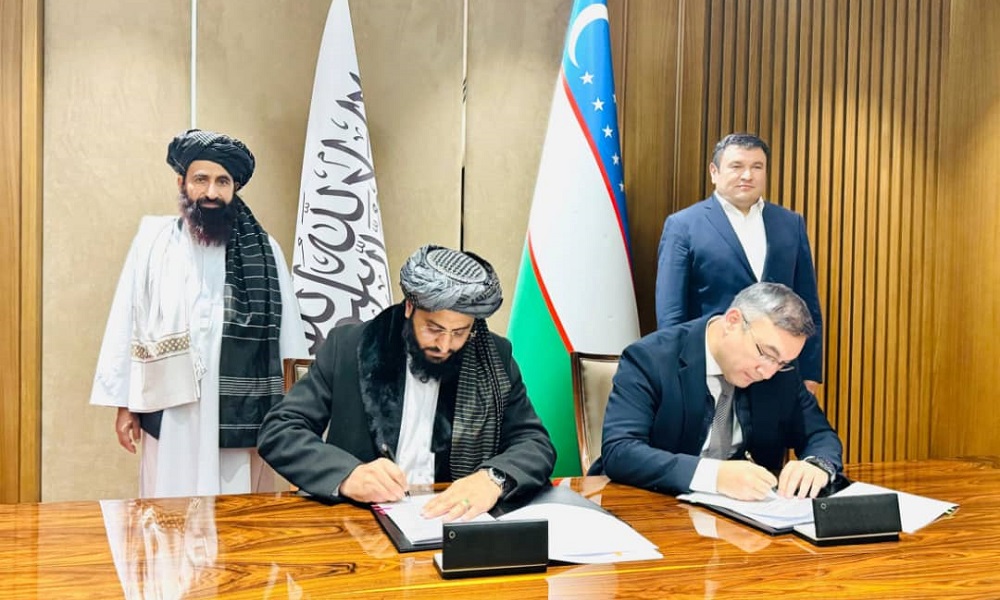
Da Afghanistan Breshna Sherkat (DABS) has announced that a contract for the purchase of electricity from Uzbekistan has been signed for the year 2025.
This agreement was signed following a visit by an Islamic Emirate delegation, led by DABS CEO Abdul Bari Omari to Tashkent, where they engaged in discussions with Uzbek officials.
"The General Director of Da Afghanistan Breshna Sherkat, along with a delegation, traveled to Uzbekistan and signed the electricity purchase agreement for 2025 during a meeting with officials from the Uzbek electricity sector,” said DABS spokesman Hekmatullah Maiwandi.
Meanwhile, some investors have urged IEA to engage with Uzbekistan regarding the 500-kilovolt electricity project and to ensure the swift completion of this project.
Once completed, the project is expected to alleviate some of the electricity shortages in the country.
Tajikistan agreement
Late last month, Tajikistan's national electric power company, Barqi Tojik, and DABS signed a similar agreement, which will see Tajikistan supply Afghanistan with power through 2025.
The signing ceremony was attended by Mahmadumar Asozoda, General Director of Barqi Tojik, Omar.
According to Barqi Tojik's press secretary, Kurbon Ahmadzoda, the agreement is expected to be extended annually until 2028.
However, the electricity export will reportedly be limited to the summer months, from May to September, and will be dependent on the availability of electricity within Tajikistan's domestic market, Tajik media reported at the time.
Powering a future
Afghanistan currently produces only 20% of its energy needs, while 80% of its electricity is imported from Uzbekistan, Tajikistan, Turkmenistan, and Iran.
The Islamic Emirate has however made it a priority to encourage domestic production of power since regaining control in August 2021.
Omar has met with potential investors on numerous occasions and has encouraged them to invest in the sector.
One such meeting was held in August with officials from Bayat Power.
Bayat Power is Afghanistan’s largest private Electric Power Production and Development Company and owns and operates Bayat Power-1, the first in a new generation of Gas to Electricity power generation plants.
Bayat Power is hoping to start work soon on Phase 2 of Bayat Power-1 in northern Jawzjan province in order to increase electricity production output for Afghanistan.
Mohammad Shoaib Sahibzada, the technical head of Bayat Power, has said that once Phase 2 is complete, electricity production will increase from 40 to 100 megawatts.
Sahibzada said Bayat Power's natural gas to electricity generation project will eventually produce up to 250 megawatts of electricity once Phase 3 is complete.
Bayat Power has produced over one billion kilowatt hours of electricity in just under five years after starting commercial operations in late 2019.
Sahibzada said that over the past five years, the company has also worked on capacity building of its technical employees.
Leading the way
Bayat Power is the first private company in 40 years to produce electricity from natural gas in the country and the multi-million dollar plant uses Siemens Energy’s SGT-A45 mobile gas turbine for its economic efficiency, flexible deployment, and power density.
Currently providing electricity to hundreds of thousands of end-users and generating more than 300 million kWh annually, the project was structured as an innovative public-private partnership between Bayat Power, Siemens Energy, and Afghanistan government entities such as the
Ministry of Mines and Petroleum, the Ministry of Energy and Water, and the General Directorate of Afghan Gas Corporation Company, Da Afghanistan Breshna Sherkat (DABS), and international partners.
The Bayat Group is the largest private investor in Afghanistan and Bayat Power is currently the only gas-powered plant in the country.
The Siemens Energy’s SGT-A45 mobile gas turbine used by the company is the only one in operation in the world.
-

 Latest News5 days ago
Latest News5 days agoAfghanistan seals T20I series victory over Zimbabwe
-

 Latest News5 days ago
Latest News5 days agoU.S. sentences Afghan man to 30 years in prison for narco-terrorism and witness tampering
-

 International Sports4 days ago
International Sports4 days agoMessi vs Ronaldo: A look at their market values over the years
-

 Latest News5 days ago
Latest News5 days agoInvestment in Afghanistan’s pharmaceutical sector reaches $300 million: Union
-

 Sport5 days ago
Sport5 days agoAfghanistan’s Gulbaddin Naib fined 15% of match fee for dissent
-

 Regional4 days ago
Regional4 days agoHezbollah chief says group lost its supply route through Syria
-
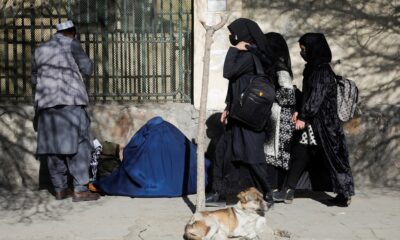
 Latest News4 days ago
Latest News4 days agoInjustices against Afghan women threaten global equality: US
-

 Sport3 days ago
Sport3 days agoATN to broadcast exciting 2025 ICC Champions Trophy live in Afghanistan
























